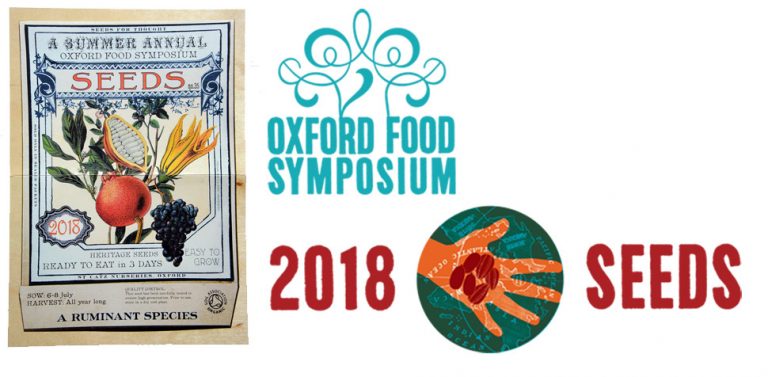
Spotlight on a Meal: The Sustainable Food Story’s Lunch
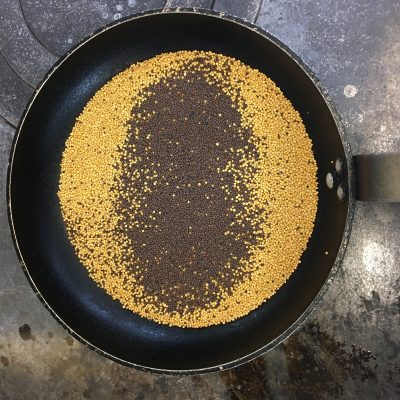
Abi Aspen Glencross and Sadhbh Moore of The Sustainable Food Story introduce their lunch from the 2018 Symposium on Seeds.
1. Please tell us a bit about yourself, your background in food, and your current role?
The Sustainable Food Story burst into life one fateful afternoon when ebullient and chatty Abi Aspen Glencross came to meet the equally ebullient and possibly even chattier Sadhbh Moore at The Skip Garden, following an e-troduction by food campaigner Tristram Stuart.
Sadhbh grew up in a family of ecogastronomes on an organic homestead in rural Ireland where fishing, foraging, picking veg and herbs from the garden and baking bread were all part of the daily routine. She studied Sustainable Development at the University of St Andrews, gaining an academic perspective that reinforced the appreciation for how she was brought up. After working with Greenpeace, other environmental organisations and a stint living in rural India she gravitated back towards what made her heart sing; harvesting fresh produce and turning it into something to be shared with her community.
Abi grew up in rural Cornwall frolicking around in fields with horses, but not farming. She then went and studied chemical engineering at Bath University and ended up working in oil and gas. Falling in love with London but not petrochemicals she headed back to uni to finish her MEng with her final dissertation project on lab grown meat, which saw her embark upon a PhD growing steak in the lab at King College post degree. A year here plus her unquenchable thirst to dig deep into what she works on taught her so much about the food system, and after questioning technology’s role she ended up at Stone Barns and Blue Hill in NYC, which ignited her love of teaming ecology, flavour and community.
We both freelance as chefs, bakers, teachers, consultants on a range of other food projects, in restaurants, cafes,events, supperclubs and also work voluntarily with other food sustainability focused charities and NGOs. Sadhbh is Head Events Chef and cookery class teacher at charity Global Generation’s The Skip Garden and Abi farms ancient grains and unusual varieties of crops gathered from botanical exploring when we go globetrekking and works with cafes and bakers Abuelo, Lilli Vanilli and Paul Rhodes. We both have a love of grains and their role in the current and future of food, this was the topic of our first supperclub, and has continued to be a focus over the last year.
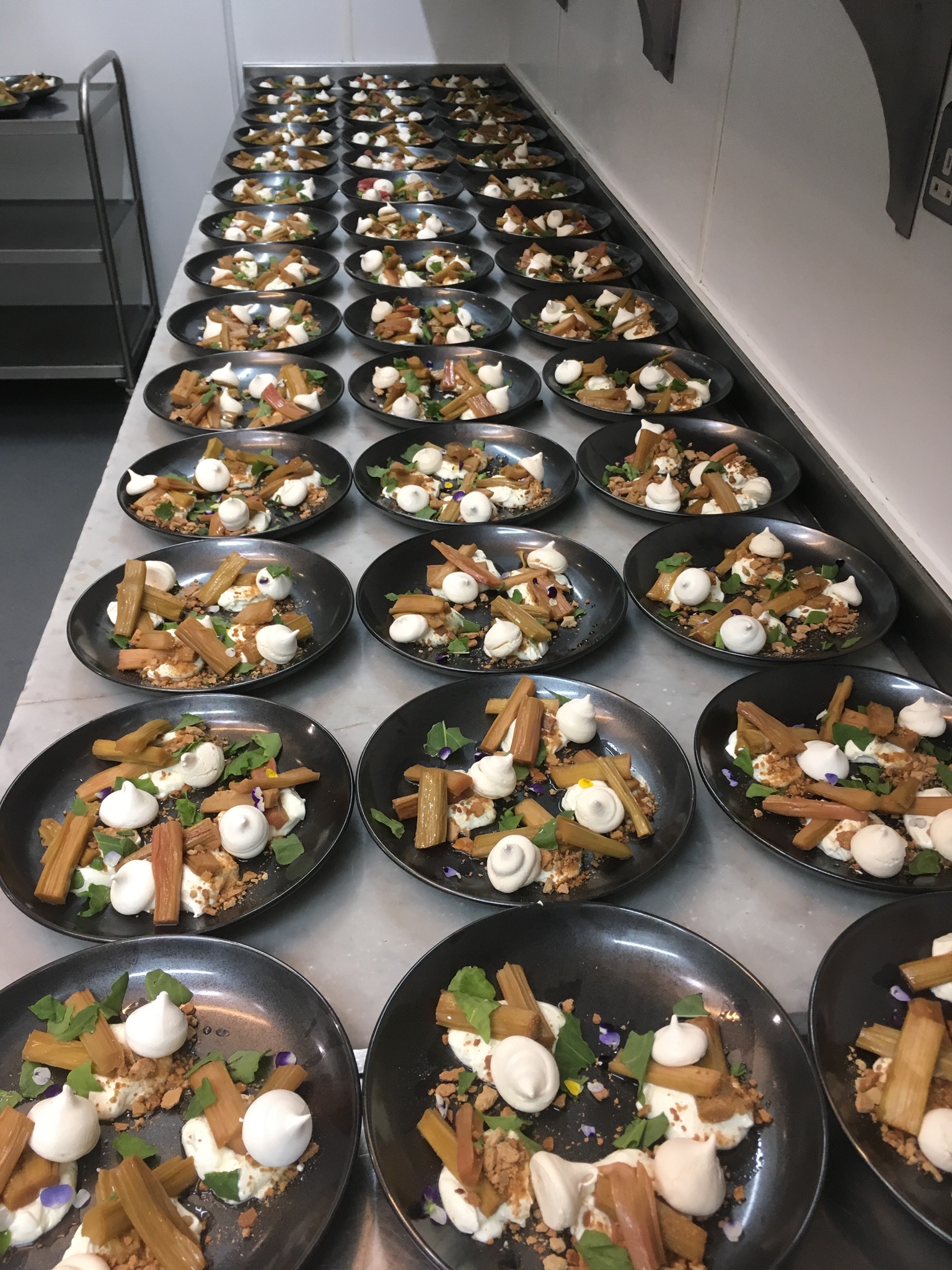
2. You created a ‘seed-to-stalk’ lunch for the Symposium this year. What was the inspiration for this wonderful meal?
It’s probably not too presumptuous to say that akin to every other chef and attendee of this conference, we love to nerd out on all things food. This of course means nerding out on edible plants a lot of the time. Considering the vegetables that are commonly known to be related (e.g. carrot and parnsip, or brussel sprout and cabbage in the brassica family) we started to dig deeper into some of the more unknown edible plant relationships (e.g. sorrel and buckwheat). Of course most of these plants and whole plant families come from seeds. Some parts of the plants in each family that we consume even are the seed (e.g. buckwheat, quinoa).
We aimed to give attendees interesting combinations, colours, flavours and stories behind all the food!
3. The theme of this year’s conference was ‘Seeds. In what ways did this meal encourage Symposiasts to think differently about the category of seeds?
With this meal we wanted to encourage Symposiasts to delve even deeper into their appreciation of the glory and wonder of plants, their interconnectedness in their respective families, their place in the food and agriculture ecosystem and our natural environment. Especially seasonal plants that grow here in the UK. We’re all for the exotic and fancy food at times, but we love to create dishes that also celebrate simplicity and locality, forgotten varieties and connections to our land. Since The Sustainable Food Story’s inception we have focused on a celebration of older varieties of grain and legumes that have fallen out of favour, or fallen into favour with feeding animals later to be consumed. We like to skip the middle man (cow, pig, sheep, chicken etc) and go straight to source and eat these nutty, nutritional, flavourful seeds and beans. That’s why it’s all vegetarian.
One thing we always like to highlight and chat about is diversity. There are different species, but also different varieties within those species that make for interesting variations in colour, flavour and also environmental impact. This is a great way to highlight how flavour and nutrition are so closely entwined with ecology and farming.
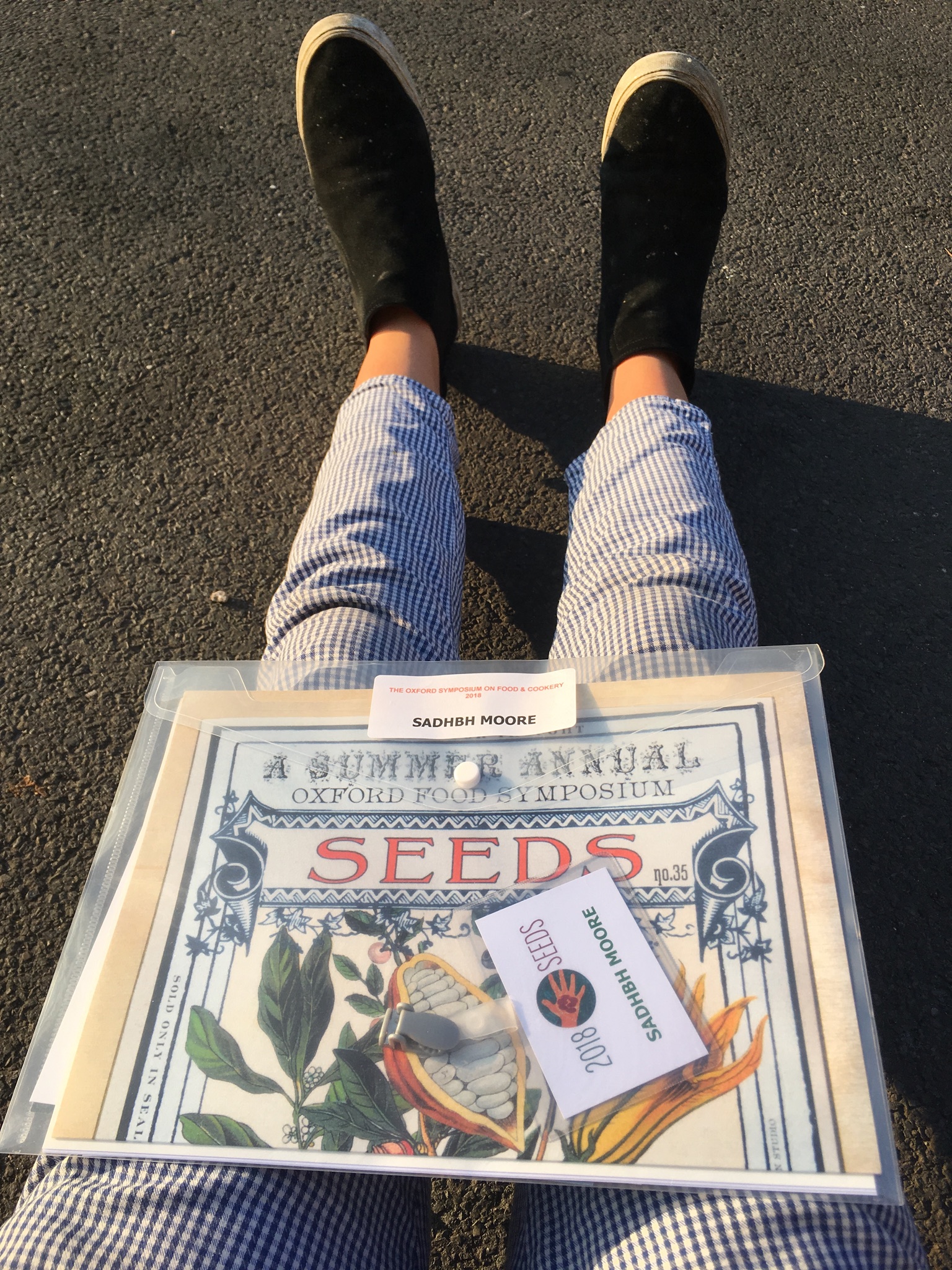
4. Can you tell us about some of the challenges you have faced in preparing this meal?
Scaling up sustainably. We’re always questioning whether we’re creating demand for something and then paradoxically making it less sustainable. A anecdotal example of this that we’ve heard is around sustainable seafood; Rick Stein would promote a certain fish as being a more sustainable option on his TV shows because it was abundant and a good alternative to fish whose numbers were under threat, like tuna, or cod (after the famous Grand Banks cod fisheries collapse), but then whichever fish he promoted would start to come under threat from overfishing because of its newfound popularity. It’s not always as simple as that, but you can see how a new fish put on the menu being touted as more sustainable could then get over depended on, potentially fished beyond its maximum sustainable yield, paradoxically causing the same problem all over again.
So we endeavour to keep our mindset away from ‘how do we create sustainable trends’ to ‘how do we create sustainable movements’. For example we don’t replace one thing with another. We don’t say stop eating meat and eat lots of avocados, we advocate eating less meat and then promote a variety of beans, pulses, grains and offal as alternatives.
It is also a bit tricky when you’re getting ingredients and produce from smaller scale producers as they aren’t often supplying through a middleman group that helps to consolidate all your orders, and it means a lot more effort and administration and running around to collect ingredients. Plus we like to use ingredients that are not the easiest to get hold of or are well known (e.g. sorrel). Luckily this is a part that we really enjoy, often getting to go to farms, foraging and collecting artisanal produce straight from source. This is where the story part often comes in!
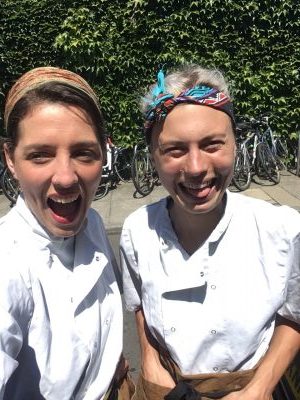
5. How did you become involved with the Oxford Symposium on Food and Cookery?
We hosted one of our interactive, roving supper clubs at Borough Market’s Cook House. Trustee and Borough Market manager David Matchett attended and liked what we did. He asked us to come on board and collaborate on hosting a meal at the symposium so we of course jumped at the opportunity to be part of such an interesting and inspiring weekend.
